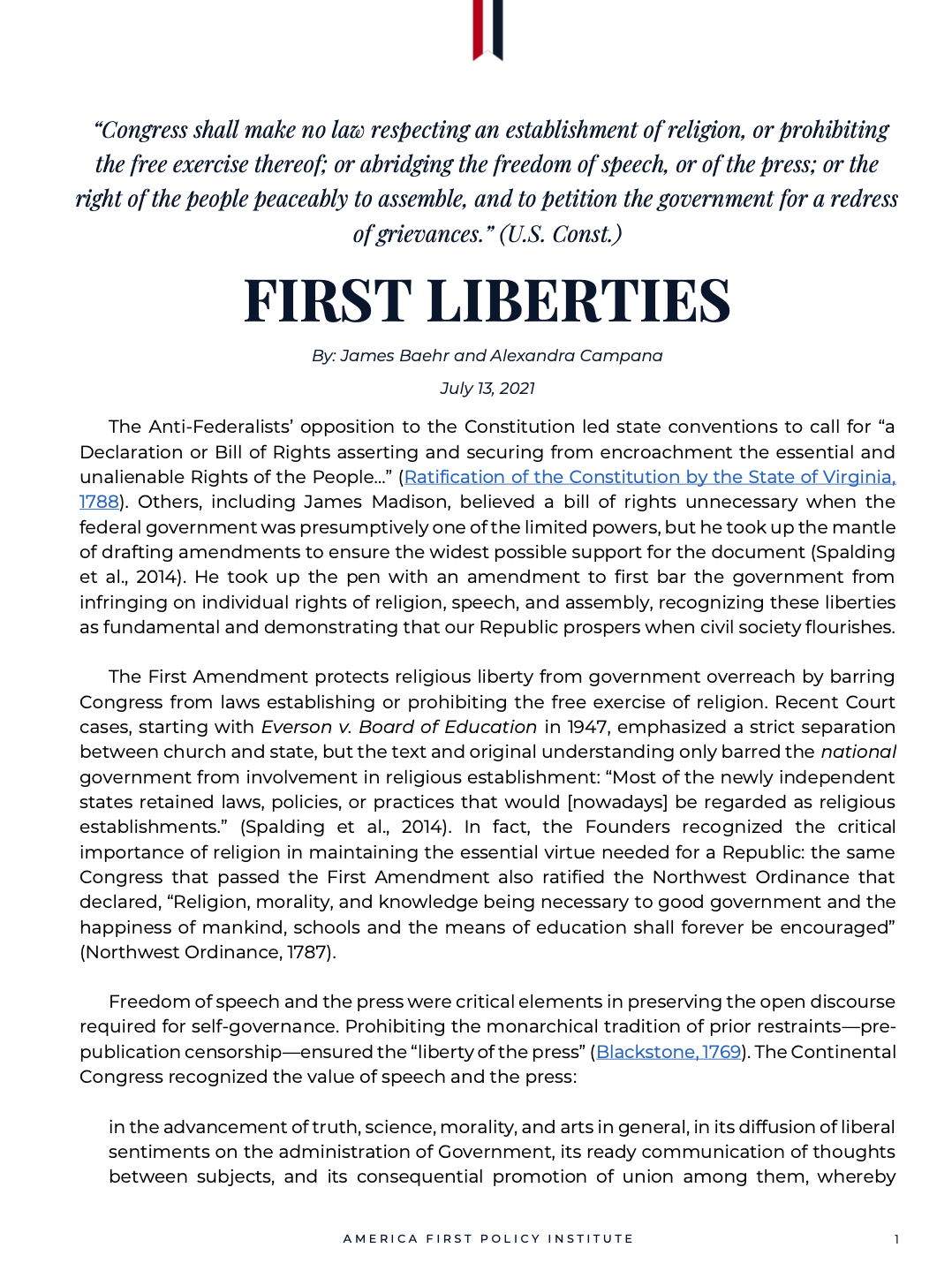First Liberties
The Anti-Federalists’ opposition to the Constitution led state conventions to call for “a Declaration or Bill of Rights asserting and securing from encroachment the essential and unalienable Rights of the People…” (Ratification of the Constitution by the State of Virginia, 1788). Others, including James Madison, believed a bill of rights unnecessary when the federal government was presumptively one of the limited powers, but he took up the mantle of drafting amendments to ensure the widest possible support for the document (Spalding et al., 2014). He took up the pen with an amendment to first bar the government from infringing on individual rights of religion, speech, and assembly, recognizing these liberties as fundamental and demonstrating that our Republic prospers when civil society flourishes.
The First Amendment protects religious liberty from government overreach by barring Congress from laws establishing or prohibiting the free exercise of religion. Recent Court cases, starting with Everson v. Board of Education in 1947, emphasized a strict separation between church and state, but the text and original understanding only barred the national government from involvement in religious establishment: “Most of the newly independent states retained laws, policies, or practices that would [nowadays] be regarded as religious establishments.” (Spalding et al., 2014). In fact, the Founders recognized the critical importance of religion in maintaining the essential virtue needed for a Republic: the same Congress that passed the First Amendment also ratified the Northwest Ordinance that declared, “Religion, morality, and knowledge being necessary to good government and the happiness of mankind, schools and the means of education shall forever be encouraged” (Northwest Ordinance, 1787).
Freedom of speech and the press were critical elements in preserving the open discourse required for self-governance. Prohibiting the monarchical tradition of prior restraints—prepublication censorship—ensured the “liberty of the press” (Blackstone, 1769). The Continental Congress recognized the value of speech and the press: in the advancement of truth, science, morality, and arts in general, in its diffusion of liberal sentiments on the administration of Government, its ready communication of thoughts between subjects, and its consequential promotion of union among them, whereby oppressive officers are shamed or intimidated into more honorable and just modes of conducting affairs (Letter to Inhabitants of Quebec, 1774).
The freedom of assembly and petition strengthen our civil society as “indispensable democratic freedoms.” Previous commentators described assembly as a means of civic renewal by “at once [effecting] the causes of social life and activity, doing for the state what the waves do for the sea: they prevent stagnation, the precursor of death and decay” (Spalding et al, 2014).
Throughout, the First Amendment shows us the emphasis the Founders placed on civil society even stronger than the federal government they created, a fitting reminder for an era in which religious liberty, free speech, and free assembly all face significant efforts at restriction.
Author Biography
James Baehr is a Senior Fellow of the America First Policy Institute. He is a Major in the Marine Corps Reserve and served as a Special Assistant to the President.
Alexandra Campana is a policy analyst for the America First Policy Institute Center for 1776 and a former White House policy advisor.
